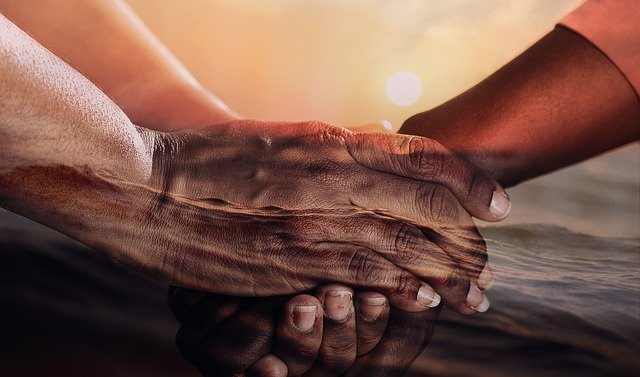by Dr. Robbie Lloyd
Nelson Mandela was born on 18 July 1918, so in a couple of weeks we will all be able to celebrate the 103rdanniversary of his birth, on what is recognised as International Nelson Mandela Day. Why do people want to keep his memory alive every year on 18 July with such a global honour? This is a worthwhile reflection in the period when we celebrate Refugee Week.
Because Mandela led the movement that won freedom for his native African First Peoples, after they had been occupied for centuries by European colonists who enslaved them, and then he helped to save South Africa from a bloodbath of revenge. By instituting the Truth & Reconciliation process that helped his nation begin to heal, “President” Mandela achieved a double miracle – Freedom and Healing. That slow process is still unfolding in a very human fractured way, with ongoing pain and acting out from the decades of trauma inflicted on South Africans of all colours.
The colonists who took over South Africa included the British and the Dutch, who became known as Afrikaaners as they took control of the country over many decades. They came up with a policy of Apartheid to attempt to separate the “blacks and whites” into a system that would divide people’s fortunes and opportunities in life. So the whites got all the benefits and the blacks could effectively act as cheap labour at best, or more often as slaves.
This whole nightmare cursed everyone in South Africa with the “othering” of the population. Those in power used the “apart-hood” (apartness) to separate, or to force apart people of different colour and ethnic background, who became “the others.” This left the whole country divided and fed resentment and bitterness on both sides, leading to armed conflict and a huge deathtoll. In fact, everyone was “an other.”
Effectively the First Peoples of South Africa were made into refugees in their own country, living in makeshift camps near wherever they could attempt to find some kind of work to survive. Soweto is the most famous (and infamous) of these camps, a site of massacres and unending suffering.
There are multiple echoes here with Australia’s colonial and modern history, in how we have mistreated our First Peoples, and tragically continue to. As a penal colony we were built on a culture of punishment and othering, and we are still a long way from recovering from that past. The national Reconciliation movement is a major part of the healing journey, as is the Uluru Statement from the Heart.
And while ever we keep mistreating all asylum seekers and refugees, alongside our First Peoples, we will remain stuck in the same othering space that cursed South Africa for so long. It is a dark shadow on our nation’s soul, and one we can easily remove, by ending the cruel treatment of refugees who come here, and those First People whom we have sentenced to permanent othering in their own land with policies that lock up young people, remove children and land, and refuse self-determination to multiple communities & families.

